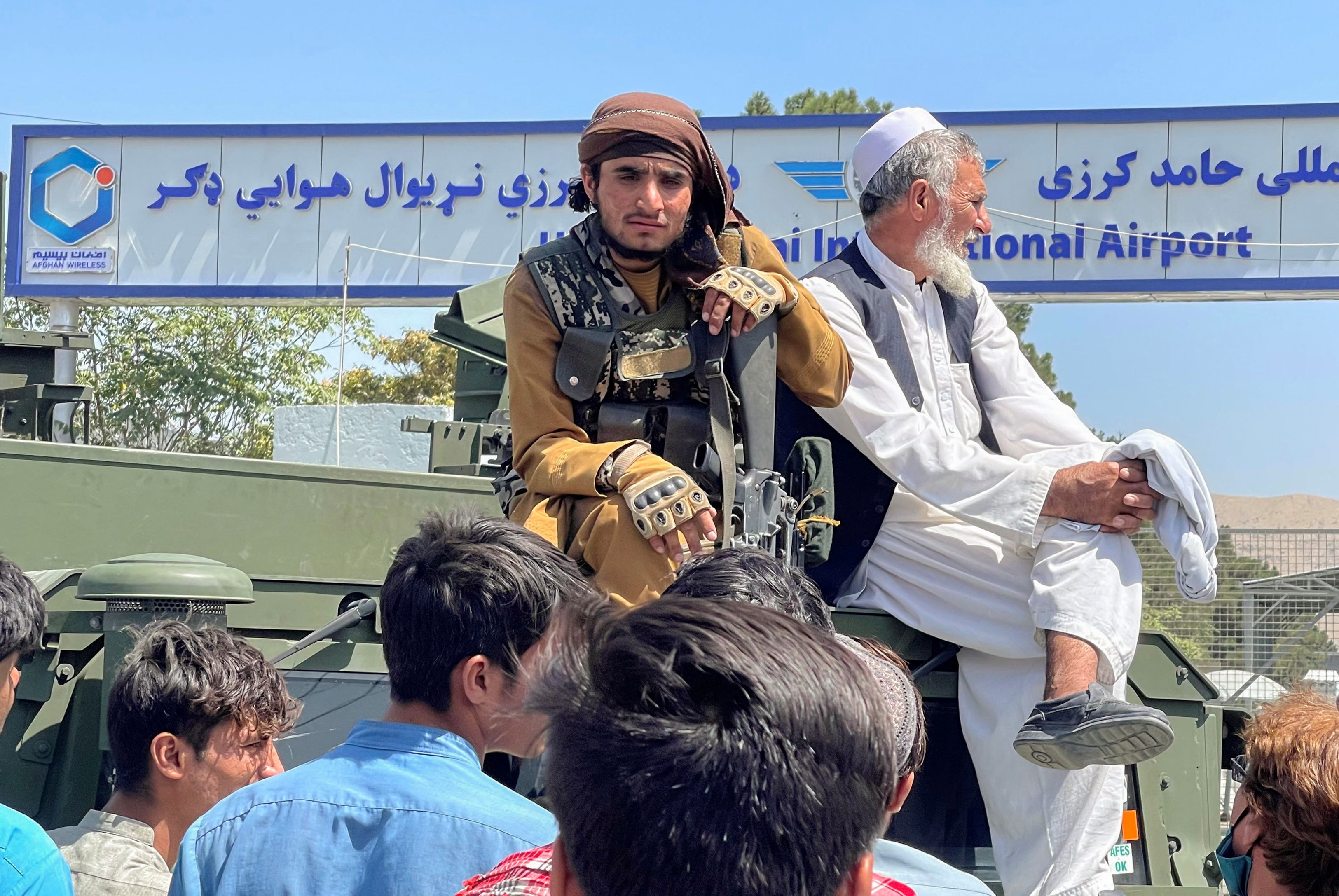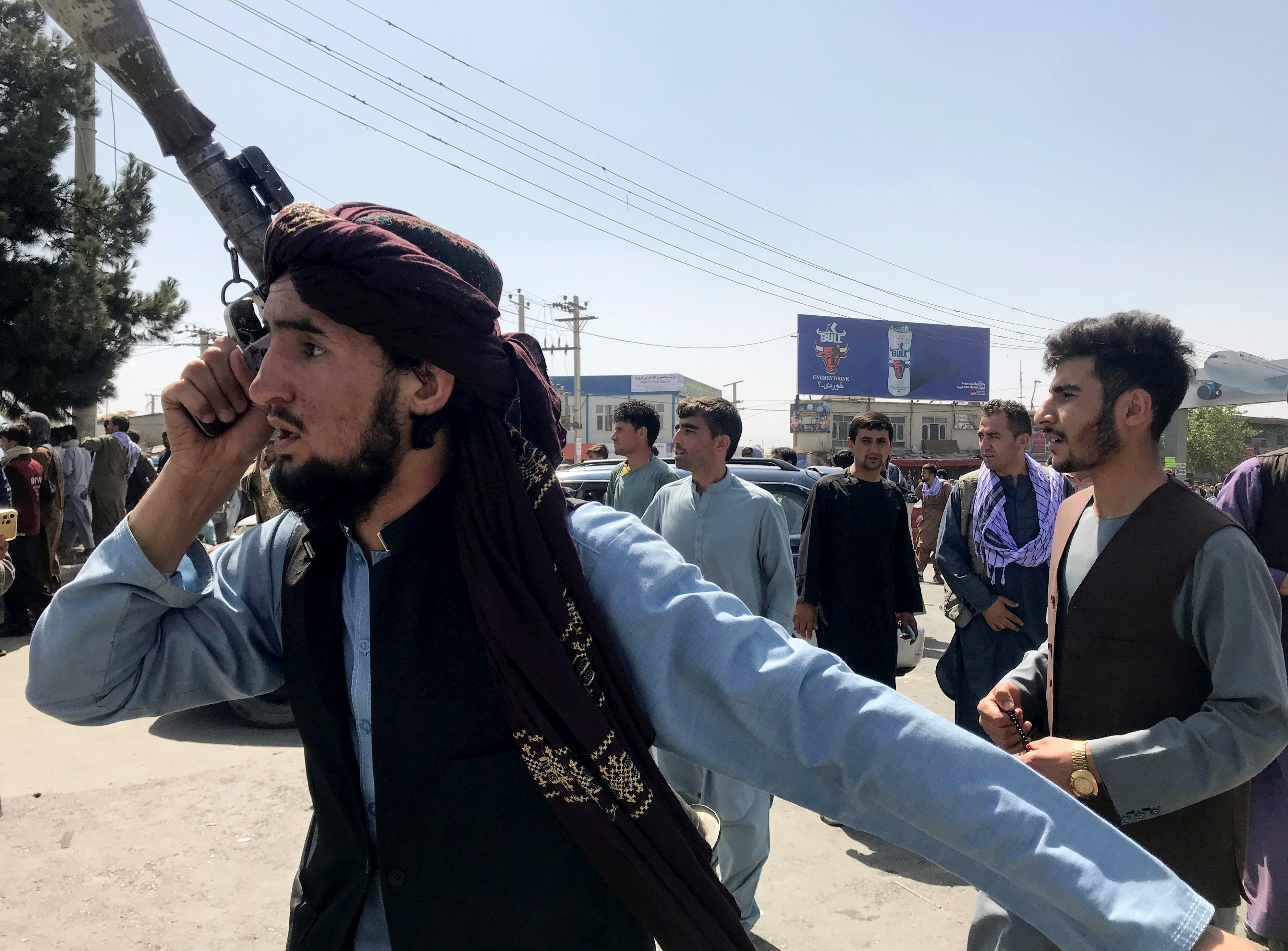The Taliban Master Plan
 |
| A member of Taliban forces (L) sits on a an armoured vehicle outside Hamid Karzai International Airport in Kabul, Afghanistan August 16, 2021. REUTERS/Stringer |
"[We had] direct talks with the security forces there, and also through mediation of tribal elders and religious scholars. All over Afghanistan, not in a particular province or a particular geographic location.""Our security chiefs and seniors of other commissions, they are all from ethnicities residing there. That is why they were able to take all those provinces' districts through negotiations and talks.""It's not the same situation as in the past."Suhail Shaheen, Doha-based Taliban spokesman"We have mujahedeen and fighters in every area.""We have Panjshiri mujehedeen in Panjshir province, Balkhi mujahedeen in Balk province, Kandahari mujahedeen in Kandar province."Waheedullah Hashimi, senior Taliban commander
Even
the Taliban themselves were surprised at the ease with which one
provincial capital after another fell easily to their advance, in some
instances with no resistance whatever. They had prepared themselves for a
more difficult struggle in their plan to re-take control of the country
they formed the government in, from 1996 to 2001. But unlike the
'foreign invaders' they knew the country, its culture, its ethnic and
tribal divisions and they resolved to do things differently this second
time around, to change their essence from a purely Pashtun presence to a
more inclusive collective, operated by Pashtuns.
"The Taliban didn't want to fight battles.""Tey wanted instead to induce a political collapse."Asfandyar Mir, security analyst for South Asia, Stanford University"It doesn't mean these Afghan leaders surrendering to us had changed or become pious, it's because there were no more dollars.""They surrendered like goats and sheep."Taliban commander, Ghazni province
It
helped, immeasurably that the U.S. was amenable to recognizing the
Taliban to the extent that they were willing to negotiate with Taliban
representatives in Qatar, entirely excluding their 'allies', the
government of Afghanistan in the process. An act that delivered the
message that the government was irrelevant to the process of
establishing 'peace', while the U.S. could negotiate a troop departure
with the Taliban terrorist group, a joyous advance notice that the
Islamist fundamentalists could proceed with their plan of ousting the
government and occupy the country completely.
With
the certainty of the departure's imminence, the signal was given for
the Taliban to proceed with their plan, giving lip service to plans to
consult with the Afghan government in a presumed shared plan for peace
and governance, as the U.S. naively willed itself to believe would be
imminent, and peace would reign with conciliation between the two. Above
all, the Americans could abscond in the night without alerting the
Afghan government, with a clear conscience; they had done everything
they could to avert further conflict.
After
all, they trained the national police and military to U.S. military
standards. They provided updated technologically advanced war machinery;
planes, helicopters, tanks, trucks, weapons; the rest was up to the
Afghan government. Which had never been weaned away from U.S. cash
installments and air power shielding their military in conflicts with
the Taliban. In the meanwhile, the Taliban conducted disparate raids,
dispatched suicide bombers, attacked soldiers and police, killing at
random, inspiring fear in the minds of Afghans, their police, the
military.
When
the U.S. forces were withdrawn they took with them confidence that had
been instilled in the Afghan government and its security forces that
they would always be protected by the presence of the U.S. and its
allied international forces in the interests of a stable Afghanistan
where the institutions of democracy and equality and an advanced economy
would be assured. Disbelief set in when the props were removed and
suddenly Afghanistan found itself abandoned and vulnerable, surrendering
to fate. And the Taliban is now well and truly equipped, courtesy of
the U.S. taxpayer and a craven administration.

The Congressional watchdog body appointed to monitor the U.S. mission in Afghanistan, SIGAR, reported in July that in some Afghan areas their forces exerted a level of resistance "while in others they surrendered or fled in disorder",
and that is the action/reaction-description of the national Afghan
forces the world has become familiar with. Panic sets in when the
mainstays of protection have been removed and with it, confidence that
one can survive the onslaught.
The
Taliban financed their return to power through opium and illegal
mining, after their 2001 ouster. They remained minimally active in
annual spring forays against foreign troops, but never instigating any
large-scale encounters, relying on guerrilla tactics and IEDs to deliver
the message they were still actively engaged, while they continued to
build up their forces with the caution that U.S. air power was to be
avoided. Bit by bit they assumed control of further reaches of
Afghanistan, provincial areas where they formed shadow governments.
And
then the mostly ethnic Pashtun Taliban began courting local support and
to persuade Tajiks, Uzbeks and other minorities that it would be in
their interests to join them. Eventually a united front arose between
the political leadership and member-fighters across the country. While
the Biden administration was busy signing its 'peace' accord ahead of
withdrawal, its Defense Intelligence Agency spoke of clear indications
the Taliban was stepping up attacks on district centres, cutting off key
highways and attacking provincial cities.
 |
| A member of Taliban forces inspects the area outside Hamid Karzai International Airport in Kabul, Afghanistan August 16, 2021. REUTERS/Stringer |
Targeted assassinations of Afghan security personnel, as well as pilots began "with the goal of weakening ... morale and undermining public trust in the government" read
the State Department's lead inspector general's July report. Once the
Taliban secured border posts cutting off revenue sources for government
and support from local clans who extended loyalty to the government in
exchange for a share of customs levies, the strategy for success was
well under way.
Labels: Afghanistan, Takeover, Taliban, United States Departure
0 Comments:
Post a Comment
<< Home